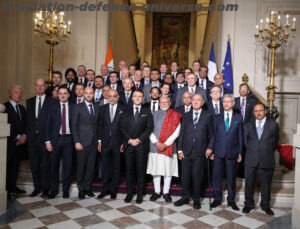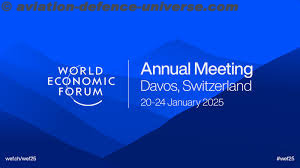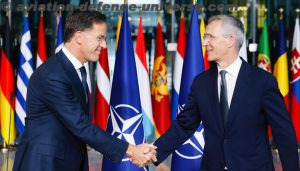10 April 2021.New Delhi. Dr Vijay Kelkar, Chairman, India Development Foundation, and former Finance Secretary and former Chairman, Finance Commission says that China has thrown the gauntlet to India and that has to be picked up. “That is the only way to regain our sovereignty of action,” he said at a dialog on ‘Strategic Patience – How India can rise to the China challenge’ with India’s business leaders, organized by All India Management Association (AIMA). He emphasized that it can be done with the same system, the same processes, the same bureaucracy and only the policies need to be different. Dr Kelkar argued that India has its last chance to rectify its policies, otherwise in 20-30 years, India will get old before it gets rich or strong.
Dr R A Mashelkar, Chairman, Reliance Innovation Council, stressed on increasing India’s investment in R&D as a share of the GDP. He pointed out that while India’s spending on R&D has remained stagnant at about 0.68% of the GDP, China’s R&D spending has multiplied five times from similar levels earlier. He argued that India had the talent for innovation and Indian talent was creating one-third of the intellectual property of the multinationals. He said that India was ahead of China in developing the vaccine for covid.
The discussion involved six authors of a strategy paper on India rising to the Chinese challenge, which has been submitted to the Government of India and which is set to be released as a book. Besides Dr Kelkar and Dr R A Mashelkar, the authors of the strategy paper include former ambassador Mr Gautam Bambawale, economists – Dr Ajit Ranade and Dr Ajay Shah, and Mr Ganesh Natarajan who also moderated the session. The session was anchored by Ms Rekha Sethi, Director General, AIMA.
Ganesh Natarajan, Chairman, 5F World, said that the strategy paper has looked at the China problem in the larger context and addressed questions about the China’s behaviour, the best response available to India in the short and the long terms, and the economic and diplomacy policy options available to the country. One of the key advices of the strategy paper, according to Mr Natarajan is that instead of aiming for a China less economy, India should aim for a less China economy. “We’ve to limit China’s growth in India and the China controlled technology standards, such as 5G, and also disrupt Chinese surveillance of Indians,” he said.
Former Ambassador Gautam Bambawale, who has served a large part of his career in China and Hong Kong, said that India had to ensure the autonomy of its decisions and for that it had to give 20 years for the economy to grow and become a more independent and important player in the world. During these 20 years, India needed to form coalitions with 20 countries that are great democracies like India, that are neighbours of China, and that are India’s own neighbours, he said. “We need to build deep partnerships between the governments, the people, the business in order to see off China’s challenge,” he said.
Dr Ajit Ranade, Chief Economist, Aditya Birla Group, said that it was no longer possible to compartmentalize economy and other issues involving India and China. He pointed out the irony that in 2020, China remained India’s biggest trading partner with India having a huge trade deficit. He pointed to critical dependence of India on Chinese supplies in electronics, capital goods, pharma, auto, chemicals and even fertilizers and furniture. “India needs to diversify its global value chain,” he said. However, he warned that India cannot do it overnight and it requires strategic patience.
Dr Ajay Shah, Research Professor of Business – Jindal Global University, said that the strategy paper advices that India should take diplomacy more seriously in its economic thinking. He pointed out that India’s economic policy making has largely been driven by domestic considerations and India has engaged with the world only hesitatingly. “To form partnerships and international coalitions, India needs to do things in domestic policy that are meaningful to its partners,” he said. He remarked that in the past, Indian diplomats went overseas only to take and not to give anything, as the diplomats had little say in what happens in India. “Now, Indian diplomats should be able to tell India’s Prime Minister what needs to be done to make friends,” he said.
On the issue of India’s options between engaging China or taking it on with the help of others, Dr Ranade said that the world looks at China’s rise as a threat whereas India’s rise as benign. He also argued that China’s inevitable rise to the top of the global economy was accompanied with vulnerabilities, as its population was ageing and it was set to lose its advantage in labour and it had opened many fronts of friction at the same time. He dismissed the argument that India was taking a risk by aligning with America against China saying that while India has a $40 bn trade deficit with China, India has a $30 bn trade surplus with America. “We are not walking into a trap,” he said.
On attracting global investment in manufacturing and taking away supply chain from China, Dr Ranade said that India needs to change its stance on foreign investment from local value addition to local job creation. He gave the example of Apple, which is merely assembling phones in India, as a model. He cited Vietnam and Bangladesh as examples of successful strategy in attracting foreign investment in manufacturing.
On the issue of India’s democracy being a handicap, Dr Shah said that while a democracy looks messy, it is still the best system, because it is a self-correcting system. “Where one person concentrates power and others become sycophants, it becomes difficult to listen and change course,” he said. He argued that the top-down model of a company where one orders and others obey does not work for society, or even large organizations. “In fact, the lack of democracy is a weak link for China, as power is concentrated and mistakes will be made,” he said.
The session was hosted on AIMA’s digital platform and it was also streamed live on Facebook and Twitter. More than 1,000 business leaders and policy thinkers joined the discussion.



























































































































